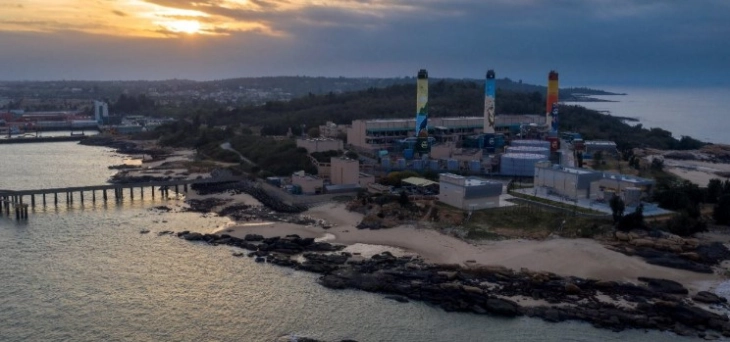Taiwan shuts down last nuclear reactor
- Taiwan has begun to shut down its last active nuclear reactor, officially marking its departure from atomic power.
- Post By Magdalena Reed
- 11:40, 17 May, 2025

Taipei, 17 May 2025 (dpa/MIA) – Taiwan has begun to shut down its last active nuclear reactor, officially marking its departure from atomic power.
The No. 2 reactor at the Maanshan Nuclear Power Plant in southern Taiwan, with a capacity of 951 megawatts, is set to be completely shut down by Saturday midnight local time, after its 40-year operating license expired, according to the state-owned energy supplier, Taiwan Power Company (Taipower).
This move fulfills a key promise of the government's 2016 energy plan. The decision was largely influenced by the 2011 nuclear disaster in Fukushima, Japan.
"This sends a strong message not only to other Asian nations like Japan and Korea but also to the rest of the world that nuclear power is unnecessary," Jusen Asuka, a professor at Japan's Tohoku University, told dpa.
The decommissioning of Taiwan's older nuclear power plants began in 2018 and 2021, followed by the shutdown of Maanshan's first reactor in July 2024.
At its peak in the mid-1980s, when all six reactors were active, nuclear power provided more than 50% of Taiwan's electricity, but in 2024 its share dropped to about 3%.
According to Taipower, 82.1% of Taiwan's electricity last year came from fossil fuels, with 11.9% generated from renewable energy sources.
On Friday, Premier Cho Jung-tai assured the public that power supply would remain stable despite rising demand, driven by key industries such as semiconductors and artificial intelligence. While the reserve margin will slightly decrease with the shutdown, it will still remain above safety thresholds.
Taipower plans to bring four new gas power plants online this year. Cho reaffirmed the goal of increasing the share of renewable energy in Taiwan's energy mix to 20% by 2026.
Critics have questioned whether Taiwan's growing energy needs can be sustainably met without nuclear power. Given the ongoing tensions with China, some experts argue for greater energy independence through a diversified supply.
Since 1949, Taiwan has operated as an independent government, but China considers it part of its territory and has repeatedly threatened to annex it, even by force if necessary.
On Tuesday, Taiwan's parliament passed an amendment allowing reactors to hypothetically extend their operational life by up to 20 years if safety can be guaranteed. However, Cho emphasized that restarting decommissioned facilities would require new legal frameworks and technical reviews.







